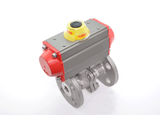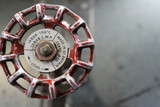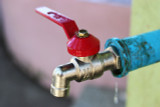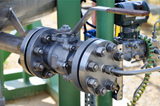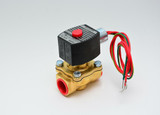2 Way Valves
Sub Category
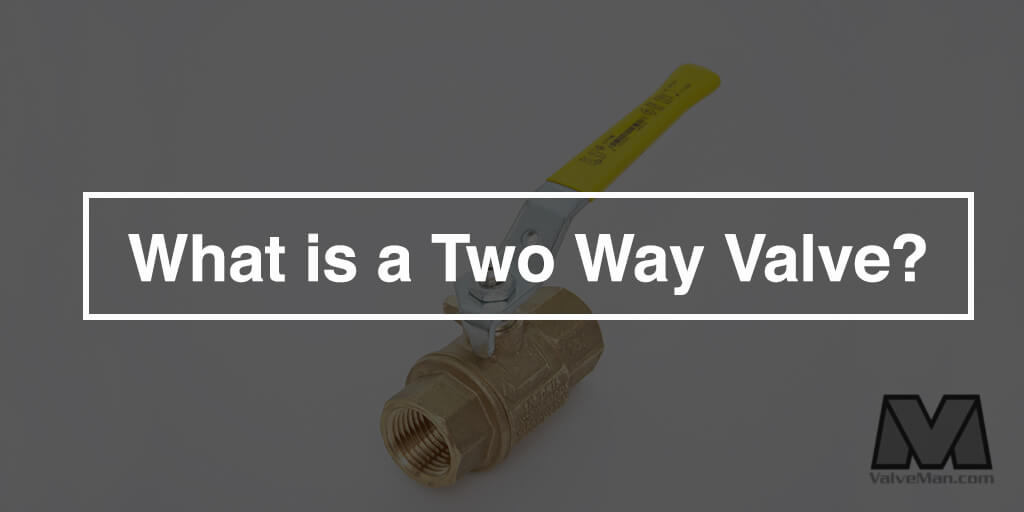
In the world of various controls for controlling the flow of liquids and gases, 2-way valves find a prominent place. These valves, true to their name, allow the flow in two directions: inwards and outwards. A straightforward but indispensable component in many systems, they control and direct the fluid or air movement within a tube or pipe.
Used extensively in diverse applications such as industrial manufacturing processes, domestic water systems, and vehicle engines, these valves have one inlet and one outlet. They feature relatively simple designs compared to multi-way valves and allow fluids or gases to flow in one direction at a time. Though basic in their functionality, the significance of these valves cannot be undermined as they play a pivotal role in regulating system operations across an array of domains.
At ValveMan, we sell a wide range of 2 way valves, including PVC, bronze, and stainless steel valves, among others. No matter the application or size of your order, ValveMan has got your valve needs covered from A to Z!
How Do 2 Way Valves Work?
The fundamental function of a 2-way valve is to either start or stop fluid flow, i.e., to open or close the system pathway. When the valve is open, there's an unrestricted flow of fluids or gases within the system. Conversely, when the valve is shut, it primarily ends this flow mechanism.
These valves operate by utilizing a ported sphere (the 'ball') located within the pipe which has a hole through the middle. When the valve handle is turned so that the ball's hole aligns with the pipeline, the fluid can effortlessly pass through. And when it's turned at a 90° angle to the pipeline, it blocks off this passage completely.
For further versatility, many 2-way valves come with an actuator that automates this opening and closing act using an external power source such as electrical, hydraulic, or pneumatic ensuring significantly minimized manual labor and faster operation.
Where Are 2 Way Valves Used?
The versatile nature of 2 way valves makes them suitable across numerous sectors. In household applications, you can find these valves in water tanks, showers, faucets, or washing machine outlets to control the flow of water. From an industrial perspective, these valves are significantly beneficial in manufacturing processes as they provide a means to isolate certain sections of a system without entirely shutting down the operations.
In hydraulic systems or pneumatic systems like air compressors, these valves play a vital role in ensuring seamless operation. They are part and parcel of HVAC systems, used to regulate heating and cooling by adjusting the flow of coolant. Furthermore, these valves are essential in maintaining optimum pressure in process industries such as oil and gas, chemical plants, power generation, and food processing.
How to Choose the Right 2 Way Valve?
With a range of 2-way valves available on ValveMan, choosing the right one demands a keen understanding of your requirements. Here are several factors you should consider:
- Type of fluid flow: The nature of the fluid plays an essential role in determining valve material. For corrosive fluids like acids or alkalis, select a valve made from corrosion-resistant materials like stainless steel or plastic.
- Pressure and temperature: The valve should be able to handle the pressure and temperature within your system. Thus, it is crucial to refer to the specifications made by the manufacturer.
- Valve size: The size of the valve should match your pipeline for efficient operation. Incorrect sizes can lead to leaks or reduced system performance.
- Type of actuator: Depending on your application, you can opt for manual, electric, pneumatic or hydraulic actuators.
Whether you’re after brass, PVC, or bronze valves, you’ve come to the right place. ValveMan’s inventory is filled to the brim with different valve variations, so you’re bound to find the one you need right here.
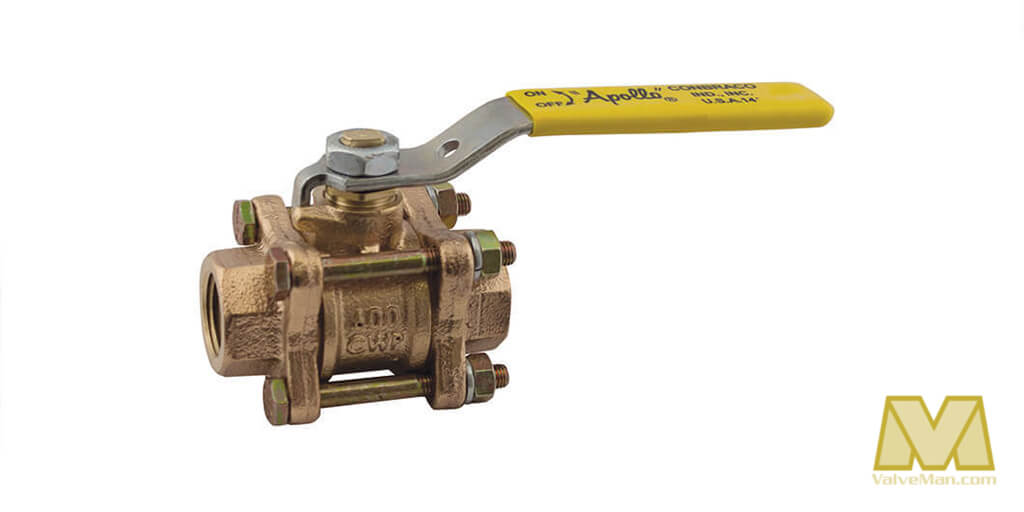
Maintenance and Lifespan of 2 Way Valves
Just like in the case of all other valve types, the proper maintenance of 2 way valves is essential if you want to prolong their lifespan and keep them at maximum efficiency levels. Paying regular attention to them will undoubtedly pay off in the long run with more extended operation time and fewer outlays for replacements.
The average lifespan of the 2 way valves we have in ValveMan’s inventory can range significantly based on the material, usage, and maintenance. Most of our 2 way valves are designed to last between 10 to 20 years if properly maintained, but their longevity can often be extended with proper care. The type of media flowing through the valves also plays a crucial role in determining their lifespan.
When shopping with ValveMan, you can be certain that your 2 way valves will serve you efficiently and for a long time, provided that you take good care of them.
ValveMan: Your One-Stop Shop For All Your Valve Needs
At ValveMan, each 2-way valve we offer is engineered for superior durability and optimal performance even under challenging conditions. Explore our range today to ensure smooth operation across your systems!
Additional Resources
Our Posts
View AllUnderstanding Valve Sizes and Measurement
Sizing the appropriate valve is critical to ensuring the performance of your system. Whether you'r …
Read MoreTypes of Water Valves
Hey there, fellow valve enthusiasts! We all know that valves play a crucial role in regulating th …
Read MoreWhat is a Backflow Preventer, and How Does it Work?
When a simple check valve is inadequate for the job, you need a backflow preventer. But knowing …
Read MoreValve inspection - main points of valve testing in Manufacture setting
Industrial facilities rely on different types of valves (such as check valves, for example) to con …
Read MoreTypes of Ball Valves
Ball valves are important components in a vast range of systems, from small family-owned workshops …
Read MoreUnderstanding valve standards and specifications
Hey there, fellow valve enthusiasts! Today, we're looking at valve codes, standards and specifica …
Read MoreHow to Tell if a Valve is On or Off
We have all been there before. You are staring at a valve; you know that you should know if it …
Read MoreUnderstanding Different Types of Valve Connections and Fittings
Hey there, fellow valve enthusiasts! We know valves play a crucial role in regulating the flow of li …
Read MoreTypes of Valve Handles: Lever and Handwheels
Whether you're involved in industrial work, plumbing, or you're a DIY enthusiast, you come across va …
Read MoreThe Basic Parts of a Valve
Valves quietly work in many different areas, even places you wouldn't expect. They're truly every …
Read MoreGas Ball Valves In Industrial Applications - 5 Things to Keep in Mind
Unlike the standard ball valves, most gas ball valves are tested and approved by CSA. These valves a …
Read MoreHow To Correctly Use A 3 Way Valve In Different Applications
To understand the "T"-port and an "L"-port 3-way valves and what makes them different, it's importan …
Read MoreIndustrial Ball Valves - 9 Questions To Make The Right Choice
Ball valves are versatile flow control devices suitable for extensive industrial applications. They …
Read MoreEverything you need to know about valve types
Valves play crucial roles in production lines and equipment performance across a multitude of ind …
Read MoreWhat is a Duty Cycle and How Does it Relate to Electric Ball Valves?
Electric actuation improves the efficiency of processes by maintaining the accuracy of the re …
Read MoreActuated Butterfly Valves 101: All You Need To Know About Their Application In Piping Systems
Butterfly valves are quarter-turn flow control or isolation devices, used for quick shut-off in p …
Read MorePractical Guide To Electric and Pneumatic Actuators – Which One To Choose?
While electrical and pneumatic actuators have several unique benefits and are preferred in differ …
Read MoreHow Do Check Valves Affect Water Pressure in the Piping System?
Check valves also known as "one-way" valves are autonomously operated unidirectional valves that all …
Read MoreUsing an Actuated Ball Valve Or a Solenoid Valve For Best Fluid Control In The System
Both ball valves and solenoid valves serve a wide variety of applications. From a&nb …
Read MoreWhat are the types of solenoid valves?
Favored for offering low power consumption, a compact space envelope, superior speed of ope …
Read More



